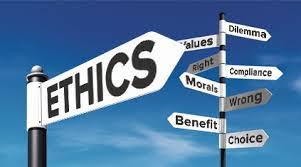Five Steps to Improve Board Monitoring of Compliance

In today’s aggressive enforcement environment, corporate board members have a target on their respective backs. Even with robust liability insurance, corporate boards are operating in a state of “ignorance is bliss.”
Chief compliance officers face enormous challenges, and perhaps their greatest challenge is enlisting and securing the support of the corporate board. We often hear about happy-talk about senior management and board support – but the proof is in real and tangible actions.
To assist in this effort, I have put together five specific steps that a company can take to improve corporate board engagement with compliance.
Board Compliance Experience: The latest mantra among practitioners is the need for compliance experience on a board. This can have a dramatic impact on board engagement and understanding of compliance.
We all know that corporate board members rarely understand what a compliance program looks like, how it operates, and what needs to be done to make the program effective. This is where a board member with compliance experience can help. In the real world, a board member who understands compliance will naturally partner with the chief compliance officer and help promote compliance initiatives. Such support is invaluable and can dramatically improve a compliance program’s performance.
Educate on Importance of Culture: We all know that corporate board “training” is really an “educational” function. Corporate boards are woefully uninformed on ethics and compliance programs. A CCO has to prioritize training/education on the importance of corporate culture and the overwhelming research that supports the conclusion that an ethical culture advances a company’s financial performance. Such a basic educational point has to be emphasized over and over. Once that is drilled into board consciousness, the CCO has to explain how to measure a company’s culture, how to monitor its culture and steps needed to remediate weaknesses in corporate culture.

Training/Education Initiatives: Like our youngsters/children, corporate boards have to be reminded about important ethics and compliance ideas. A regular training program is critical – not an annual appearance before he board but a quarterly appearance for training/education purposes. The risk environment is rapidly changing – from serious “MeToo” issues, to data privacy, to cyber security, companies face a rapidly changing landscape and they have to be kept abreast of such risks and mitigation strategies involving corporate culture and compliance.
On a separate front, corporate boards do not know how to oversee and monitor a corporate compliance program. A CCO has to provide a step-by-step explanation to outline what information is relevant, how the information is collected and what information should be provided to board members for their review and response.
As board member liability increases for compliance failures, CCOs have to address these anxieties by providing detailed and specific guidance – not feel good pie charts and bar graphs recounting training attendance ad code of conduct certifications.

Compliance Dashboards: CCOs are rapidly converging to reliance on a compliance dashboard that reports in real time key compliance statistics and performance indicators. Vendors are bringing these products to market and CCOs have to embrace automation as a tool to advance compliance performance and oversight. Corporate board members need a similar dashboard – an easy way for board members to understand and monitor compliance.
Personal Relationships: CCOs have to establish a personal relationship with key board members – in particular, the Audit Chairperson who may be responsible for oversight of the compliance program. CCOs are politicians – their success depends on interpersonal relationships. A CCO who has a strong personal relationship with the Audit Chair has the ability to communicate consistently about ethics and compliance issues. Such a communications avenues is invaluable to the overall success of a compliance program.















1 Response
[…] What are 5 steps you can engage in to improve BOD monitoring of compliance. Mike Volkov explains on Corruption, Crime and Compliance. […]